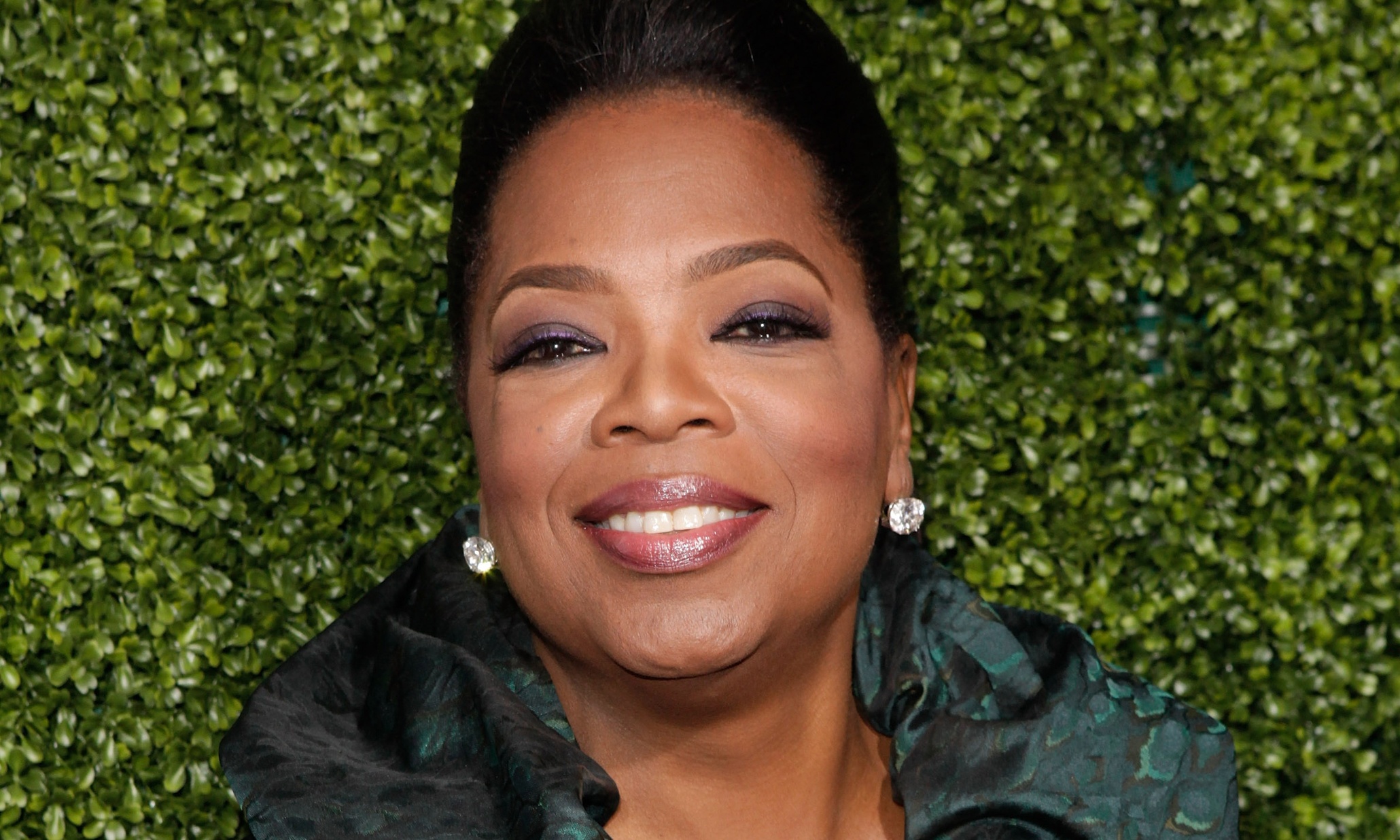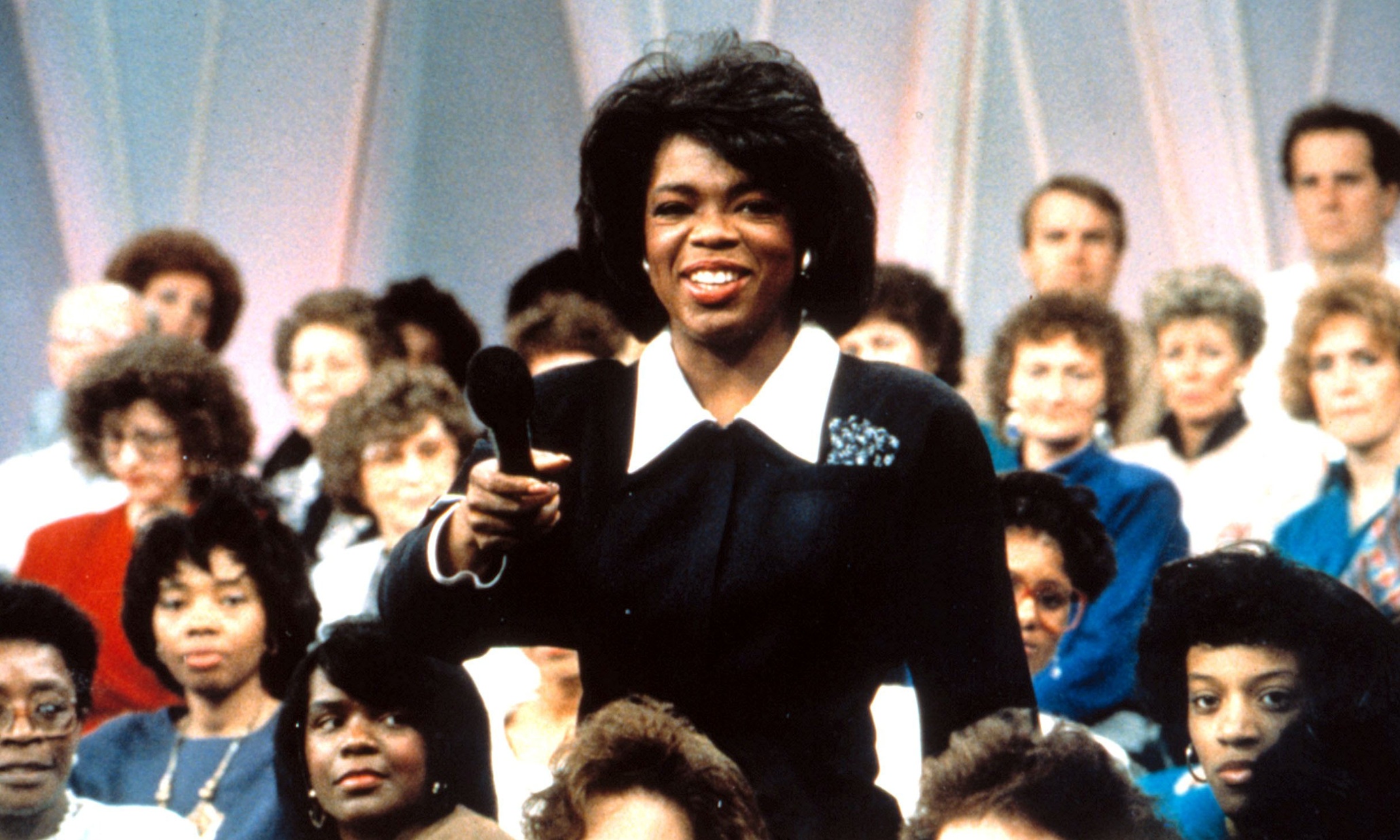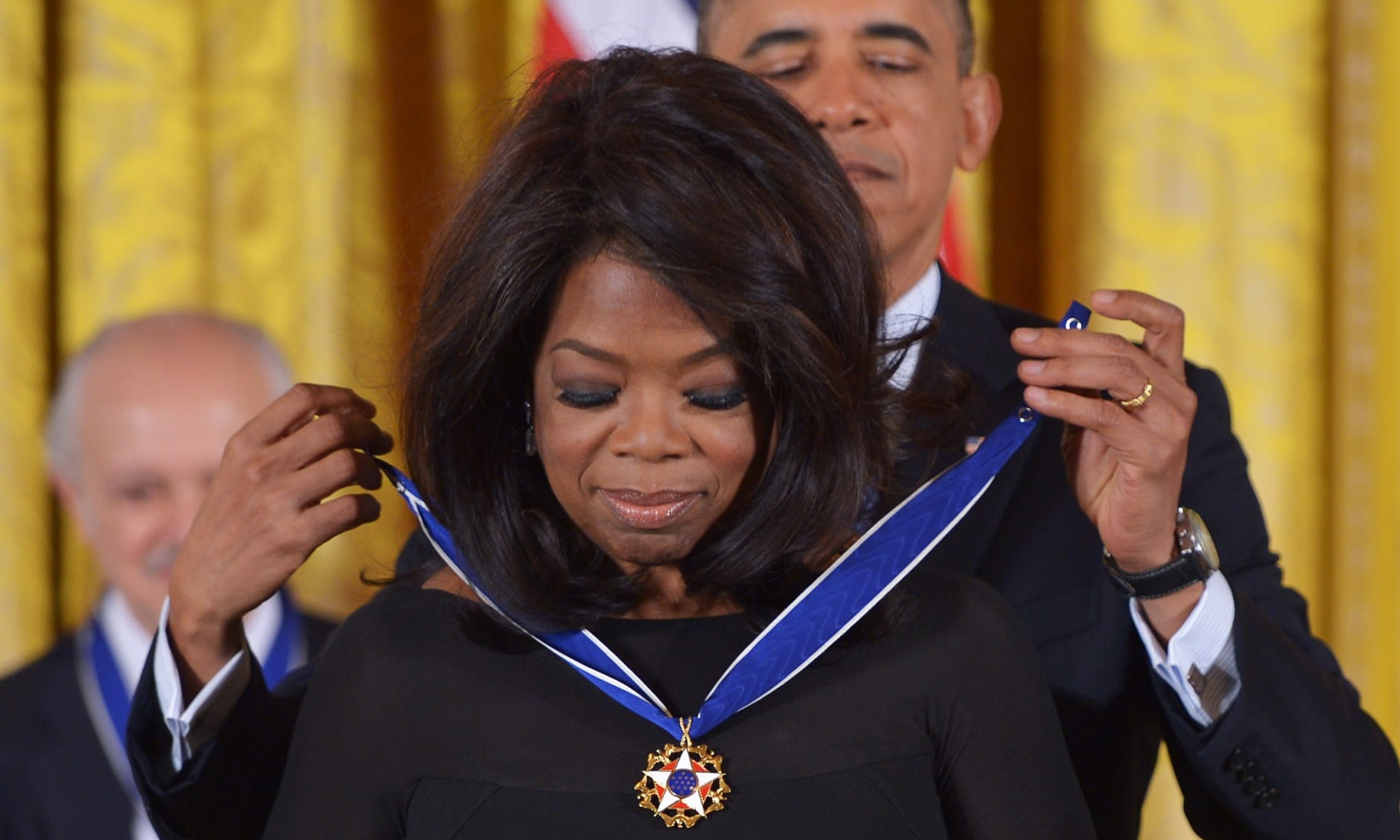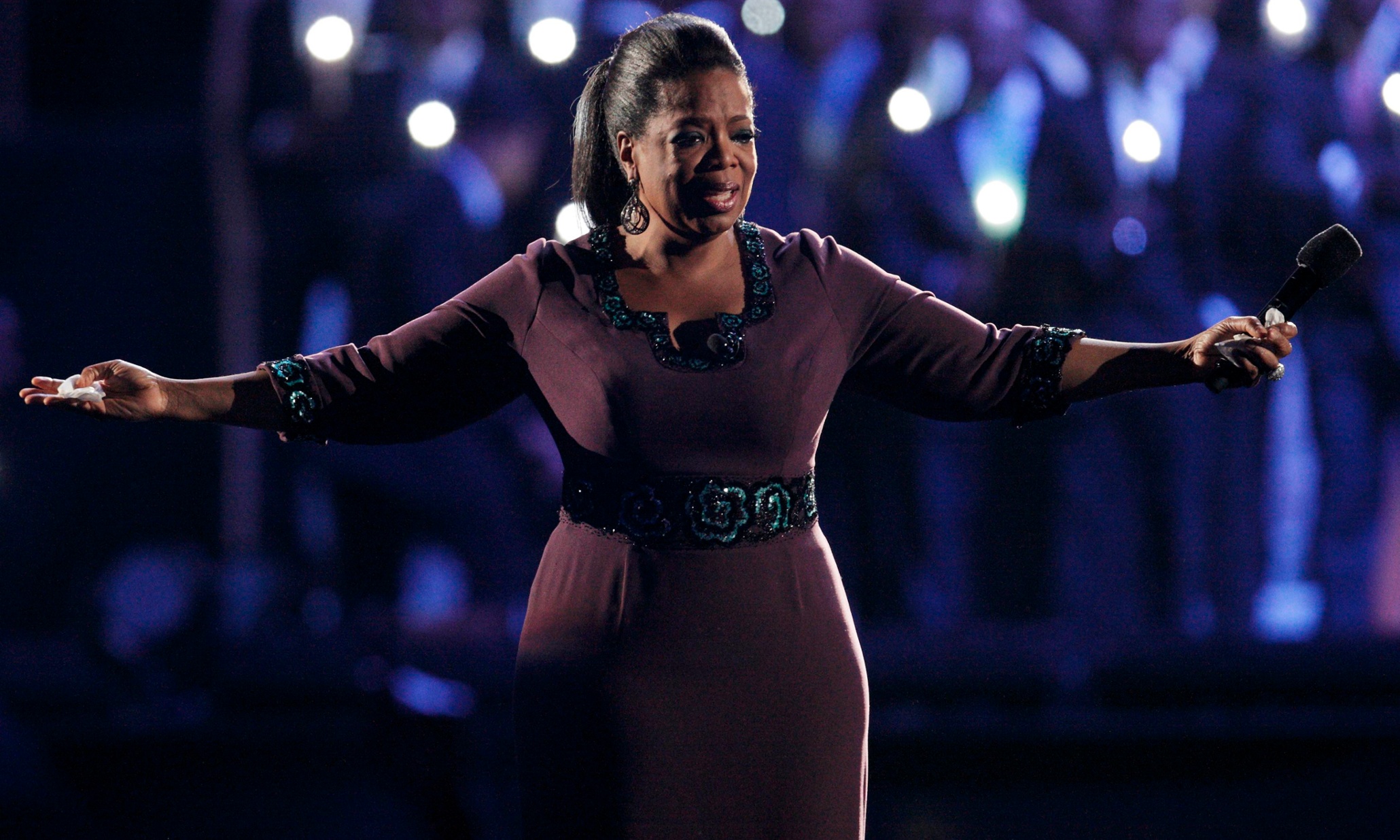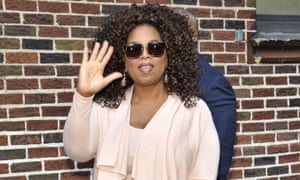Prominent evangelist Franklin Graham has criticized Oprah Winfrey's new documentary series, "Belief," which suggests that one can reach God through a number of paths -- not just through the blood of Jesus Christ.
Graham said in a Facebook message on Monday that the new series, which premiered on Sunday, "looks at a number of religions and might make one think there are many paths to God, as Oprah has said in the past."
"There are not many paths to God or to eternal life with Him. A personal relationship with Almighty God through His Son Jesus Christ is the only thing that can fill the void in the human heart," he emphasized.
Graham charges that this is "not a matter of opinion," and added: "One way, one Savior, no exceptions."
The seven-part series, which airs on OWN for seven consecutive nights, Oct. 18-24, looks at various religions, including Christianity, Hinduism, Judaism, Islam and Sikhism, and searches for deeper meaning and connection with the world.
"The special will also introduce some of the most compelling stories in 'Belief,' each illustrating the rituals and relationships that bind us all together as human beings," reads a description on the show's website. "These stories and others will all lead us to ask: What do you believe?'"
Graham punctuated his Facebook post with a link leading to an article in The Atlantic, which notes that over the years, Winfrey has promoted an "eclectic spirituality," claiming that there are "millions of ways" to get to God, and has backed some New Age gurus, such as Deepak Chopra and Eckhart Tolle.
"Her difficult-to-nail-down theology led Christianity Today to call her 'a postmodern priestess-an icon of church-free spirituality,'" writes journalist Jonathan Merritt, contending that Winfrey's "millions-of-ways approach to faith comes through more than once" throughout "Belief".
"The debut episode depicts a birth to highlight that 'every single one of us enters through the same universal experience' before asking why we are here and whether 'there is a divine order to the mystery of our lives,'" he continues.
"In the introduction to episode two, Oprah says, 'Our planet is home to countless religions, and nearly every one of those faiths asks us to love-love your God, your family, your neighbor.' It's a muffled but constant drumbeat."
While Winfrey''s beliefs may be difficult to pinpoint, she has in the past revealed the tremendous influence the Bible has had on her life and identified herself as a Christian.
"My favorite Bible verse-because I am Christian-is Acts 17:28. It says, 'In God I live and move and have my being'," Winfrey said back in 2012. "And you want to know why I'm so successful? Because I knew that at 4 years-old ... I wouldn't be who I am today without a spiritual consciousness, without spiritual values and ultimately without spiritual love."
In September, the entertainment mogul revealed that she learned Bible verses before learning nursery rhymes: "I grew up with the stories of Elijah and Elisha and Shadrach, Meshach and Abednego in the fire," she said.
"All of these biblical characters and stories were what I learned before I learned nursery rhymes or before I learned fairytales. ... I learned what it means to rely on Jesus, and not to rely on your own power. Because of those stories, I grew up knowing that real fear was trusting in only myself and that being fearless was being able to release my fears to that which is greater than myself and let God handle it."
Twenty-six years ago, Oprah Winfrey
opened Harpo Studios in Chicago, Illinois. The company controlled
Winfrey’s media and entertainment properties like her iconic "The Oprah
Winfrey Show", but in March 2015 Winfrey announced that Harpo Studios would be closing by the end of 2015.
Here is a look at the company, and what the future holds for the queen of media's entertainment ventures.
Fun fact: Harpo was the name of Winfrey’s character’s husband in the film "The Color Purple," and it’s also the name Oprah spelled backward.
In 1988, when Harpo Productions took over ownership and production responsibilities for Winfrey’s daytime talk show. This was a historic move and made Oprah first woman in history to own and produce her own talk show and the third woman in history to own and produce her own show. Harpo also made her the first African-American (man or woman) to own an entertainment production company.
As Winfrey’s fame grew, she ventured into new platforms, including TV movies, miniseries, feature films, books, and publishing. Winfrey served as the chairperson while Jeffrey Jacobs served as the company’s COO. By 1987, “The Oprah Winfrey Show” had become the top syndicated talk show in the country, taking over the top spot from "Donahue," which had led the pack for years.
The success of Winfrey’s show (and of Harpo) continued throughout the decade. It received multiple Emmy awards and stayed in the number one talk show spot for 12 seasons in a row. In total, the show earned 32 Emmy awards. In 1988, Winfrey was honored with the International Radio and Television Society's Broadcaster of the Year Award. She was the youngest person (and the fifth woman) to receive the award.
With Winfrey’s name fast becoming a powerful brand, the company spent $20 million renovating a 100,000-square-foot TV and film production facility in downtown Chicago. That’s where "The Oprah Winfrey Show" and most other Harpo Entertainment productions were produced. The studio transformed the Chicago neighborhood where it was located. As The Huffington Post explained, “Winfrey is often given credit for transforming the once-gritty industrial enclave to a neighborhood filled with families pushing strollers and walking their dogs. Former Mayor Richard M. Daley even named a nearby street for the talk show queen before he retired.”
The company continued to expand, and Winfrey created a new division
called Harpo Films. Harpo Films and ABC announced a three-year agreement
in the mid-1990s in which Harpo would create six made-for-television
movies for ABC under the "Oprah Winfrey Presents" banner. Total revenues in 1997 at Harpo were a reported $150 million, which was a 7.1% increase from the year prior.
A few years later, in April 2000, Harpo teamed up with the Hearst Corporation to publish the very first issue of O, The Oprah Magazine, which is still a successful women’s lifestyle magazine. At the start of 2008, Winfrey made a huge announcement with OWN, her network, and multi-platform media company. Winfrey was to serve as Chairman of The Oprah Winfrey Network, LLC, and the venture would be equally owned by Discovery Communications Inc. (DISCA) and Harpo in a 50/50 split.
OWN had struggled for a few years before the cable channel started to turn real profits. In 2013, Discovery announced that in the second quarter of that year, “OWN was cash-flow positive for the first time.” In 2014, OWN was called, “one of the biggest comeback stories in cable history.”
However, as OWN became more successful, it became time to shutter Harpo. In the spring of 2015, Winfrey announced that all productions would be moving to the OWN headquarters in Los Angeles, and it is estimated that approximately 200 employees at Harpo’s Chicago office will be laid off.
"The time had come to downsize this part of the business and to move forward,” Winfrey told The Hollywood Reporter. “It will be sad to say goodbye, but I look ahead with such a knowing that what the future holds is even more than I can see.”
The Harpo shakeup happened almost a year after real estate developer Sterling Bay Cos. closed a reported $32 million deal for the company's four-building facility.
OWN has posted three consecutive years of growth, and in February of 2015 it was named the number 20 ad-supported cable network among women. The network got off to a rocky start but seems to have found its footing in recent years. They are aiming to produce more scripted shows (as opposed to the “docuseries” like the docuseries “Lindsay,” with Linsay Lohan). OWN also has plans to work with well-regarded filmmakers like "Selma’s" Ava DuVernay, and Harpo still has a development slate of films and shows. As well, Winfrey plans to get back in front of the camera for some OWN projects. She had a role in last year’s “Selma,” and plans to work with DuVernay again.
Harpo’s Humble Beginnings
Oprah started out as a rookie Baltimore journalist; however, her career began to take flight when she was recruited by a television station in Chicago to host a morning show. Her career quickly took off, and Winfrey debuted the syndicated "The Oprah Winfrey Show" in 1986, to an audience of about 10 million people. By the end of the first year, the show had grossed an estimated $125 million. Winfrey was soon awarded ownership of the show by ABC, at the same time that she launched Harpo Productions.Fun fact: Harpo was the name of Winfrey’s character’s husband in the film "The Color Purple," and it’s also the name Oprah spelled backward.
In 1988, when Harpo Productions took over ownership and production responsibilities for Winfrey’s daytime talk show. This was a historic move and made Oprah first woman in history to own and produce her own talk show and the third woman in history to own and produce her own show. Harpo also made her the first African-American (man or woman) to own an entertainment production company.
As Winfrey’s fame grew, she ventured into new platforms, including TV movies, miniseries, feature films, books, and publishing. Winfrey served as the chairperson while Jeffrey Jacobs served as the company’s COO. By 1987, “The Oprah Winfrey Show” had become the top syndicated talk show in the country, taking over the top spot from "Donahue," which had led the pack for years.
The success of Winfrey’s show (and of Harpo) continued throughout the decade. It received multiple Emmy awards and stayed in the number one talk show spot for 12 seasons in a row. In total, the show earned 32 Emmy awards. In 1988, Winfrey was honored with the International Radio and Television Society's Broadcaster of the Year Award. She was the youngest person (and the fifth woman) to receive the award.
With Winfrey’s name fast becoming a powerful brand, the company spent $20 million renovating a 100,000-square-foot TV and film production facility in downtown Chicago. That’s where "The Oprah Winfrey Show" and most other Harpo Entertainment productions were produced. The studio transformed the Chicago neighborhood where it was located. As The Huffington Post explained, “Winfrey is often given credit for transforming the once-gritty industrial enclave to a neighborhood filled with families pushing strollers and walking their dogs. Former Mayor Richard M. Daley even named a nearby street for the talk show queen before he retired.”
A few years later, in April 2000, Harpo teamed up with the Hearst Corporation to publish the very first issue of O, The Oprah Magazine, which is still a successful women’s lifestyle magazine. At the start of 2008, Winfrey made a huge announcement with OWN, her network, and multi-platform media company. Winfrey was to serve as Chairman of The Oprah Winfrey Network, LLC, and the venture would be equally owned by Discovery Communications Inc. (DISCA) and Harpo in a 50/50 split.
OWN had struggled for a few years before the cable channel started to turn real profits. In 2013, Discovery announced that in the second quarter of that year, “OWN was cash-flow positive for the first time.” In 2014, OWN was called, “one of the biggest comeback stories in cable history.”
However, as OWN became more successful, it became time to shutter Harpo. In the spring of 2015, Winfrey announced that all productions would be moving to the OWN headquarters in Los Angeles, and it is estimated that approximately 200 employees at Harpo’s Chicago office will be laid off.
"The time had come to downsize this part of the business and to move forward,” Winfrey told The Hollywood Reporter. “It will be sad to say goodbye, but I look ahead with such a knowing that what the future holds is even more than I can see.”
The Harpo shakeup happened almost a year after real estate developer Sterling Bay Cos. closed a reported $32 million deal for the company's four-building facility.
Changes Ahead
When the decision to close Harpo was announced, company presidents, Sheri Salata, and Erik Logan cited the need to streamline operations and have the whole OWN team in one location.OWN has posted three consecutive years of growth, and in February of 2015 it was named the number 20 ad-supported cable network among women. The network got off to a rocky start but seems to have found its footing in recent years. They are aiming to produce more scripted shows (as opposed to the “docuseries” like the docuseries “Lindsay,” with Linsay Lohan). OWN also has plans to work with well-regarded filmmakers like "Selma’s" Ava DuVernay, and Harpo still has a development slate of films and shows. As well, Winfrey plans to get back in front of the camera for some OWN projects. She had a role in last year’s “Selma,” and plans to work with DuVernay again.



